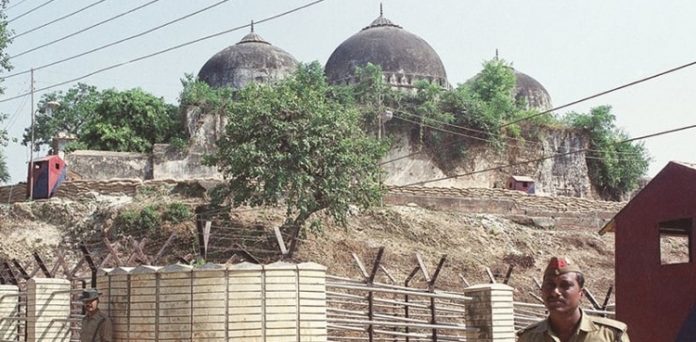LUCKNOW : In a ruling in a 28-year-old case of Babri Masjid demolition, all 32 accused including senior politicians LK Advani and Murli Manohar Joshi have been given clean chit by a special CBI [Central Bureau of Investigation] court in Lucknow in India.
The 32 accused including BJP’s founder-members LK Advani, Uma Bharti, former chief minister of Uttar Pradesh (UP) Kalyan Singh, Murli Manohar Joshi and others were acquitted in Babri Masjid demolition case as the court found ‘not enough’ evidence against them.
The verdict was announced by Special Judge SK Yadav which stated that the demolition of Babri Masjid by ‘unlawful elements’ ‘was not pre-planned’ while the BJP politicians, LK Advani and Murli Manohar Joshi, had tried to stop it.
The judge observed that Babri Masjid demolition in 1992 was not a criminal conspiracy.
While the verdict being announced, strict security measures were made around the special court in Lucknow.
Pakistan Tehreek-e-Insaf (PTI) lawmaker Dr Ramesh Kumar Vankwani and the patron-in-chief of Pakistan Hindu Council (PHC), said the top court in Pakistan gives verdict on rights of the minorities, whereas, the Indian Supreme Court is going to construct temple after demolishing a mosque. The lawmaker said that it was a wrong decision to construct a temple at the site of Babri Masjid.
This verdict was followed by the ruling of India’s Supreme Court in November last year which stated that the Hindus will get Ayodhya land and an alternate piece of land should be allotted to Muslims to balance the claims of the both communities.
The unanimous verdict on the long-running Ayodhya land dispute had been announced by a five-member bench of the Indian apex court headed by Chief Justice Ranjan Gogoi. The bench also comprised of Justices S. A. Bobde, D. Y. Chandrachud, Ashok Bhushan and S. Abdul Nazeer.
The bench its decision observed that there was enough material to prove that the Babri Masjid was not constructed on a vacant land. There was a structure there and it was not an Islamic structure, bench said.
The Supreme Court bench had declared demolition of Babri Masjid in 1992 as a violation of law. It also said that Sunni Waqf Board has not been able to establish its claim of adverse possession as evidence shows that Hindus were not barred from entering the premises before 1857.

















